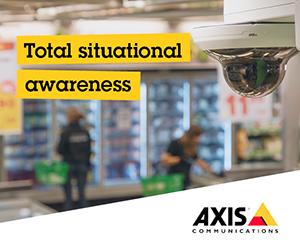industry focus
Deforestation legislation could lead to product shortages
Toilet roll shortages are looming as the tissue industry is unprepared for new EU rules which look to ban products linked to deforestation.
Chris Forbes, the CEO of organic toilet roll company Cheeky Panda that the laws set to take effect from May, will have a “gigantic effect” on the industry.
“There will definitely be a squeeze on availability and we can expect the price of recycled tissue to rise as demand for alternatives increases.”
The new laws will affect wood as well as coffee, soy and cocoa and require companies trading these commodities to follow a strict process, with an 18-month implementation period for larger firms and a 24-month period for small-to-medium sized businesses.
Many companies currently rely on raw materials such as virgin fibres made from newly harvested trees, which could see some suppliers having to “spend billions of pounds on operational transformation,” according to Forbes.
“They would probably spend more money lobbying to change the legislation than making those changes.”
However, some brands, like Cheeky Panda use alternative natural sources to wood, including bamboo.
According to a recent study by finance company MSCI, “preparedness does not appear to be high” as less than 40 per cent of businesses in the paper industry have a deforestation policy.
In its ‘Cutting deforestation: Market restrictions get real’ paper, MSCI researchers added: “Firms that have been thinking of deforestation as an issue for somebody else or someday down the road, may have to get a handle on it and in a hurry.”
The EU’s new laws will require all companies trading commodities to follow strict due diligence processes to trade with the bloc.
Products linked to deforestation will be banned from import and export with the EU. This will also affect businesses either based in or trading with the UK.
The regulation is expected to come into force in the second quarter of this year, with an 18-month implementation period for larger companies and 24-month period for SMEs.
A recent study by American finance company MSCI found that “preparedness does not appear to be high” among paper companies as less than 40% of businesses had a deforestation policy.
“Eliminating products rooted in deforested land from a supply chain is typically a major endeavour requiring extensive due diligence,” MSCI researchers wrote in the ‘Cutting deforestation: Market restrictions get real’ paper.
“Firms that have been thinking of deforestation as an issue for somebody else or someday down the road, may have to get a handle on it and in a hurry.”
Accrol, a maker of own-label tissue for most UK grocers, said it was fully prepared for the new EU regulation and supports the introduction of similar laws in the UK.
“We don’t anticipate paper supply shortages as a result of these regulations but potentially a surge in demand for FSC-certified, PEFC and other sustainably sourced stocks,” said Accrol head of marketing and communications, Vikki Makinson.
“One hundred per cent of paper sourced by Accrol is from FSC accredited suppliers and we believe all paper suppliers should adhere to these best practice industry standards.
“We welcome regulation that discourages environmentally damaging practices within our industry.”
In addition to new EU regulation, the UK government also recently issued guidelines for businesses to stop sourcing virgin tree fibre products and transition to recycled materials instead.
Cottonelle and Kleenex maker Kimberley-Clark said it was committed to halve its use of natural forest fibres by 2025.
It was on its way to source 90 per cent of its tissue fibre from “environmentally preferred sources” by the same year, it added.





